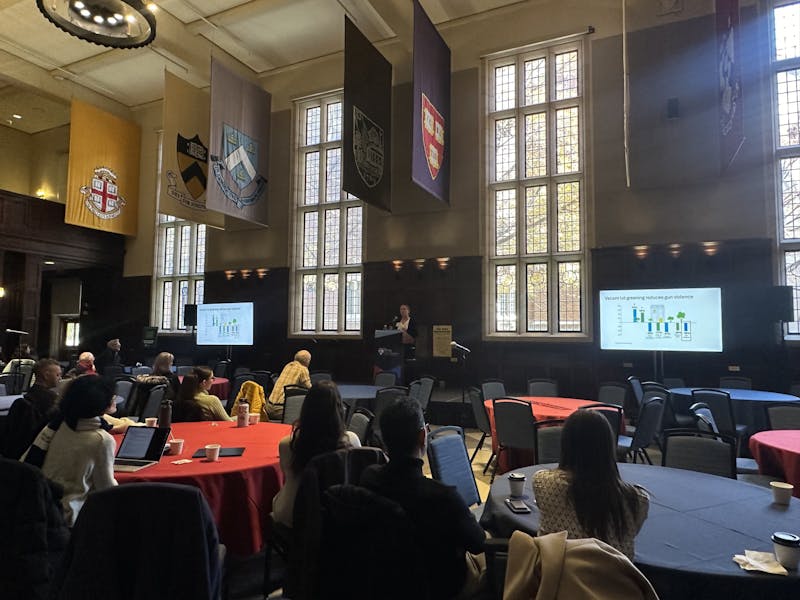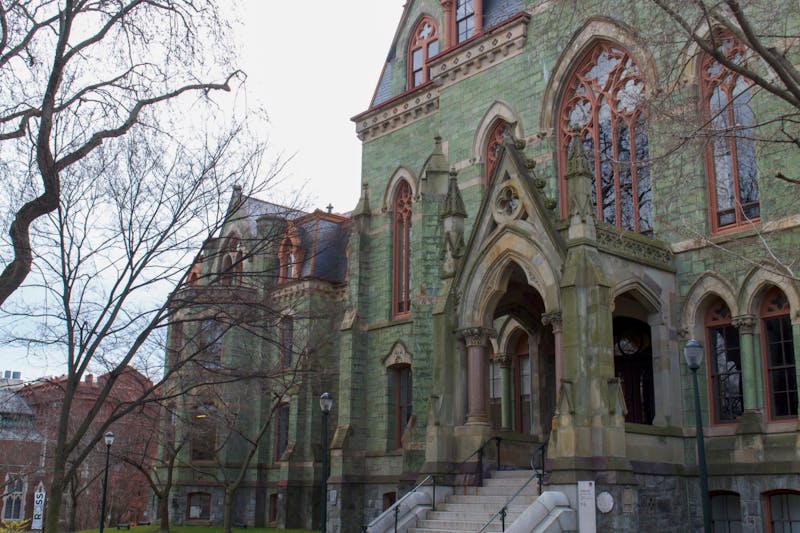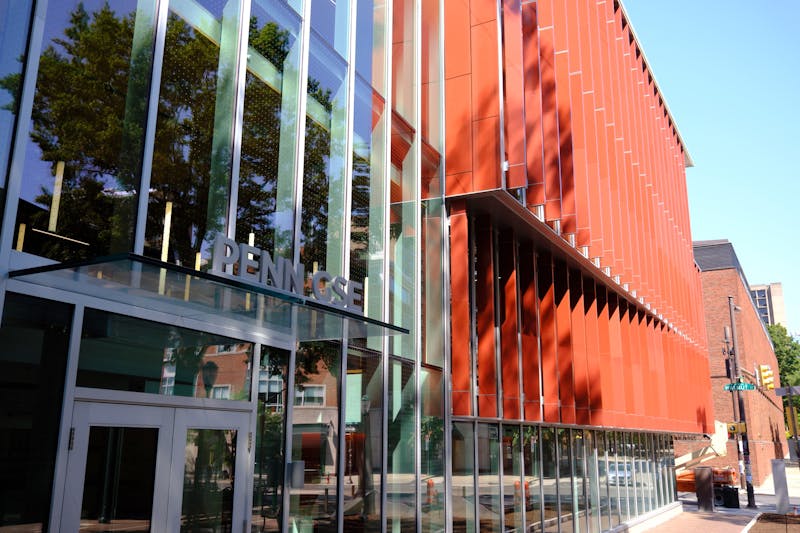
Enrique Peñalosa Londoño, the former mayor of Bogotá, Colombia, visited Penn on Jan. 23.
Credit: Devansh RaniwalaFormer mayor of Bogotá, Colombia, Enrique Peñalosa Londoño, visited Penn to discuss modern urban planning with a panel of political leaders and academics at an event at Fisher Fine Arts Library on Jan. 23.
The event, titled “The City in the 21st Century: Celebrating the Reflective Practitioner,” celebrated 20 years of collaboration between Penn Press and the Penn Institute for Urban Research. Alongside Peñalosa, the panel discussion featured former Penn president Judith Rodin, former Miami mayor Manny Diaz, 1968 Penn Ph.D. graduate and former Northeastern University president Richard Freeland, and former Executive Director of the Philadelphia City Planning Commission Eleanor Sharpe.
During his keynote address, Peñalosa discussed his tenure as mayor, when he revolutionized Bogotá by developing public transportation, green spaces, and city planning with a focus on equality.
“I think that when we are designing cities, a city is only a means to a way of life,” Peñalosa told The Daily Pennsylvanian. “We are designing ways of life that are happier than others.”
Throughout Peñalosa's term, he faced significant pushback, particularly for initiatives such as banning cars from sidewalks and converting country clubs into public parks. Yet, Peñalosa emphasized his commitment to improving lives over political ambitions.
“My dream was to implement these things, and I couldn't care about the political cost because my dream was not to become president, but rather to do these projects,” he added to the DP.
As he described in the address, Peñalosa’s goals for transforming cities were driven by his desire to foster equality and create more opportunities for people.
“I mean, we go to our home to sleep, but our home is the city, really,” he said. “It’s where we are — in the café, on the streets, in the parks, in cultural activities. So, I believe we can create better ways of life that are happier, and the city can be a powerful means to help achieve that.”
Peñalosa’s fellow panelists echoed many of his sentiments later in the discussion. Diaz discussed how Miami bounced back from a recession during his term because the city invested in creating homes and high-rise buildings. Rodin emphasized Penn's role as an institution, not just as a university, but as a part of Philadelphia.
Susan Wachter, an Albert Sussman Professor of Real Estate and co-director of the Penn IUR, hosted the event and collaborated with many of the panelists to provide feedback on their books.
“The panelists you see are reflective practitioners — practitioners who engage with thinkers, she said. “And that's really powerful, to have academics and scholars come together.”
Lawrence C. Nussdorf Professor of Urban Research and Education and Co-Director of the Penn IUR, Eugénie Birch, who worked with Peñalosa in the past, aims to inspire students to become future leaders through her work at Penn IUR and events such as this one.
“We also live in cities, and we want them to understand and appreciate what cities are, the leadership in cities that makes them great, and how they too can participate in that leadership,” she said. “Wherever they are, we want to open doors and their eyes to what it means to run a city and the great variety of leaders involved.”
The Daily Pennsylvanian is an independent, student-run newspaper. Please consider making a donation to support the coverage that shapes the University. Your generosity ensures a future of strong journalism at Penn.
Donate











